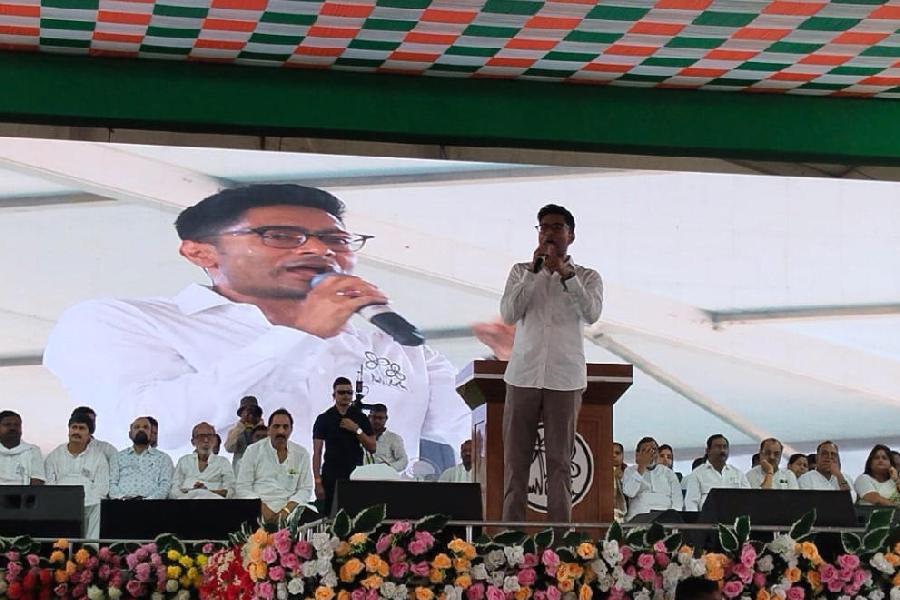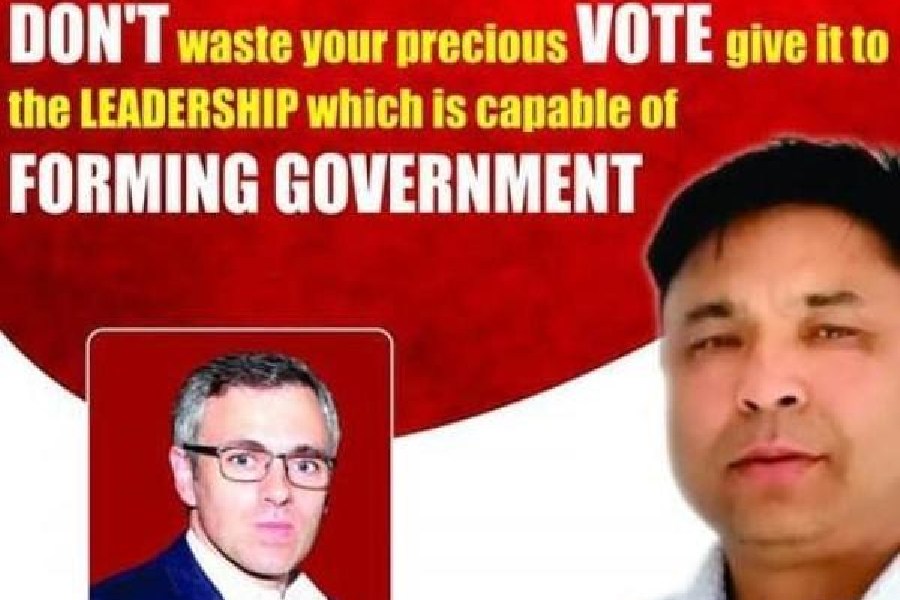Sharing is caring
Sir — Christmas is the season of giving and sharing as well as rejuvenating familial bonds. But the observance of traditions needs to accommodate the demands of modern living. Take the instance of Caroline Duddridge, a sexagenerian from the United Kingdom, who has been charging her family for hosting the Christmas dinner every year — a practical solution given that Christmas feasts are increasingly getting more expensive. This year, however, Duddrige has asked her children and grandchildren to cough up more money owing to current inflationary prices. This has led many to question her Yuletide spirit. But is such economising prudent? Making the youth pay a higher amount might discourage them from spending time with their grandparents.
Gargi Mitra, Malda
In haste
Sir — With 146 Opposition parliamentarians suspended, the winter session of Parliament was adjourned sine die and concluded a day before its scheduled closure. The session witnessed a hurried passage of important bills. This is detrimental to the democratic framework of the country. Key bills such as the Bharatiya Nyaya Sanhita, the telecommunications bill and the election commissioners bill were passed with voice votes in the absence of debates.
Further, the passing of the election commissioners bill, which seeks to regulate the appointment of the chief election commissioner and the election commissioners, will significantly impact the future of Indian democracy. The bill replaces the chief justice of India in the appointment panel with the Union law minister, thus handing over more power to the executive. This will undermine the autonomy of the electoral body which has been on a decline since the Narendra Modi government came to power in 2014.
S. Kamat, Alto Santa Cruz, Goa
Sir — The telecommunications bill, which was recently passed in Parliament, will tighten the Centre’s grip on the digital populace. The new bill empowers the government to intercept messages of any kind citing ‘national security’ and ‘public order’. That is not all. State agencies have the green signal to wiretap. The State has also been given the power to take over telecom services in the case of public emergencies.
While the bill’s purpose of streamlining the telecom sector is welcome, concerns have been raised about some of the provisions being vulnerable to misuse. This betrays the government’s desire for surveillance and its disregard for privacy.
Shovanlal Chakraborty, Calcutta
Sir — Two legislations — the chief election commissioner and other election commissioners bill and the telecommunications bill — were pushed through by the government in Parliament. While the former seeks to change the appointment process of election commissioners, the latter has proposed the allocation of spectrum to satellite communication companies through the administrative method without auction. It is deplorable that such key legislations were passed when most of the Opposition was under suspension.
Ibne Ali, Sitamarhi, Bihar
Crisis management
Sir — Food security is a human right. According to a recent report by the United Nations, more than half a million people in Gaza are starving owing to the conflict between Israel and Hamas (“UN: Half a million starving in Gaza”, Dec 23).
The extent of the hunger crisis in Gaza has now eclipsed the famine-like conditions in Afghanistan and Yemen. Israel’s blockade of critical humanitarian aid has severely strained the health centres in Gaza. The United Nations should take steps to rein in the warring sides.
Arka Goswami, West Burdwan
Sir — The United Nations was established after the Second World War in an attempt to secure successive generations from the scourge of war. But the global body has proved to be toothless in bringing peace to strife-torn Ukraine and Gaza. Since the UN does not have its own military force, aggressive powers undermine its directives with impunity. Member states should either take steps to reform the organisation or declare it defunct.
Aranya Sanyal, Siliguri
Paltry reward
Sir — It is unfortunate that the 12 rat-hole miners who saved the lives of 41 labourers trapped inside the tunnel in Uttarakhand were awarded a paltry sum of 50,000 rupees by the Uttarakhand government (“Rat-hole saviours put ‘paltry’ reward on hold”, Dec 24). Their refusal to accept the cash is justified.
The reward amount was not commensurate with the role that the miners played in the rescue mission, which involved risking their own lives. Their names should have been recommended for the bravery award.
M.N. Gupta, Hooghly
Sir — When high-tech, imported machines broke down during the long-drawn rescue operation in the Silkyara tunnel in Uttarakhand, 12 rat-hole miners were roped in to save the lives of the 41 trapped tunnel workers. The rat-hole miners had manually drilled the final stretch through the debris in the collapsed part of the tunnel in claustrophobic conditions. A reward of 50,000 rupees is too paltry a sum to acknowledge their heroic act. The government should pay them adequately and also take steps to uplift them.
M. Pradyu, Kannur
Magical drops
Sir — The editorial, “Touched by tears” (Dec 24), elucidates the significance of tears, which, according to a recent study, can apparently melt the hearts of aggressive men. It is thus ironic that society encourages men to hide their tears. Shedding tears also helps in coping with grief and is the first step towards healing.
Anthony Henriques, Mumbai










